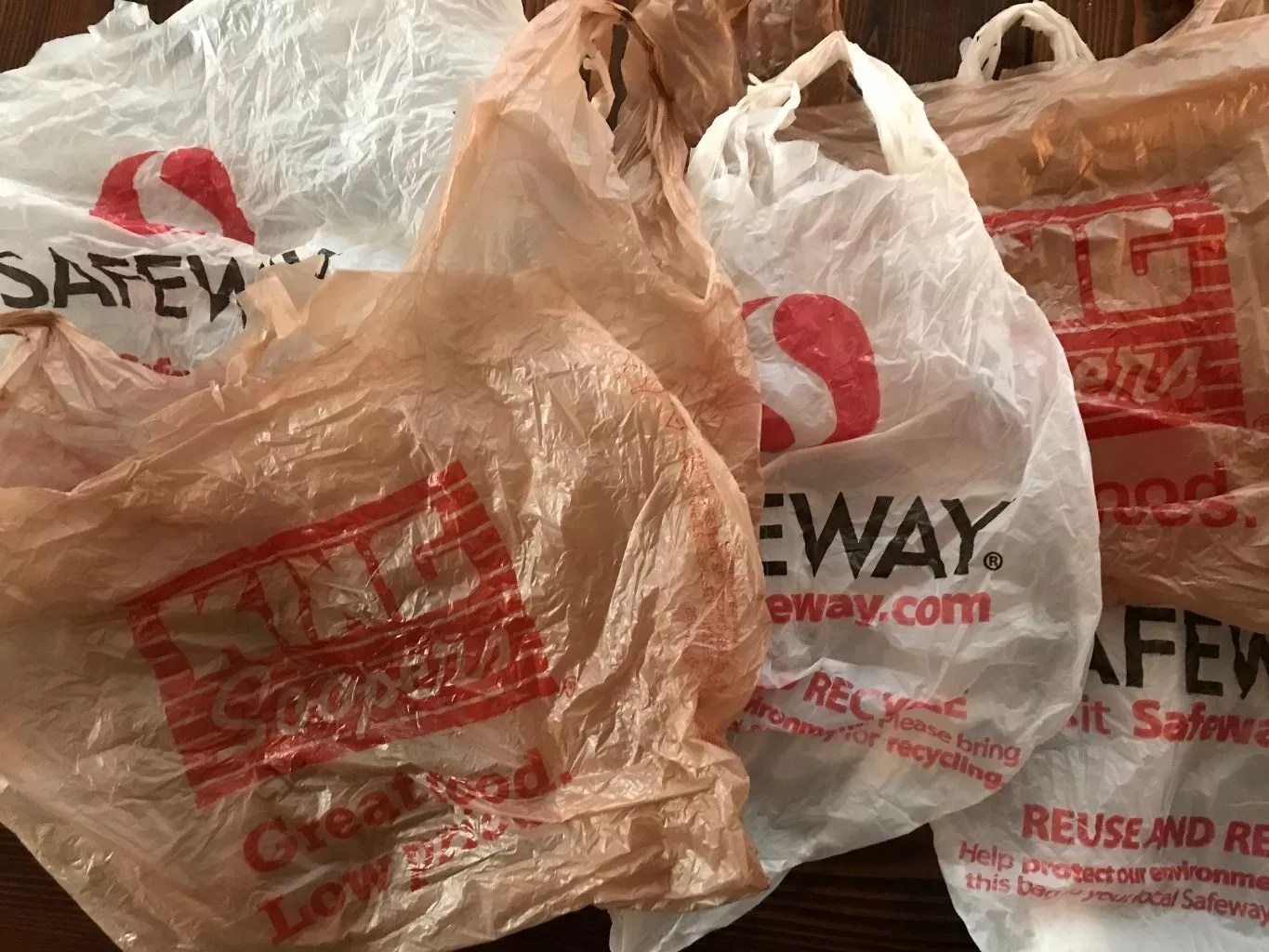
Teague Bohlen

Audio By Carbonatix
Coloradans had better savor those collections of plastic bags they’re hoarding under their kitchen sink – because the state will soon be cutting off their supply.
Starting January 1, retail stores in Colorado are banned from giving customers single-use plastic bags to hold their purchases, including bags at supermarkets, liquor stores, clothing shops and even pharmacies. Affected businesses have until June 1 to use up their existing inventory of plastic bags, but they cannot buy any more – and some stores have already run out before the New Year.
This is all because of a state law passed in 2021 intended to mitigate the impact that plastic pollution has on Colorado’s environment. The law rolled out gradually, establishing ten-cent fees on plastic bags at the beginning of 2023 and now banning them altogether.
“The goal of this ban is to prevent additional plastics from entering our environment,” says Representative Alex Valdez, who sponsored the law in 2021. “By doing so, we protect our natural beauty and the health of our rivers, streams and lakes.”
Small stores that only operate in Colorado and have three or fewer locations are exempt from the ban on single-use plastic bags, which also doesn’t apply to small plastic bags that are used to hold specific items like prescription medication in pharmacies or produce and meat in grocery stores.
Once the ban takes effect, businesses will still be allowed to provide single-use paper bags for ten cents per bag.
Many popular grocery chains – including Target, King Soopers, Safeway and Walgreens – are going that route, planning to swap out their plastic bags for paper in 2024. Other stores, such as Whole Foods and Trader Joe’s, already solely provide paper bags per internal company policies. But some businesses are opting to get rid of paper bags, as well.
Walmart has done away with all single-use bags – paper and plastic – and now only offers reusable cloth bags for 74 cents each. The store began switching to this model when Colorado implemented the ten-cent bag fees at the beginning of the year.
“Eliminating single-use bags is part of our commitment to achieve zero waste across our operations and ultimately shift gradually toward a circular economy built on advancing reuse, refill and recycling habits,” said Walmart spokesperson Lauren Willis in a January statement.
The Walton-owned retail giant joins the likes of Sprouts, Costco and Sam’s Club as places where single-use bags have been replaced with reusable canvas bags and cardboard boxes to carry purchased goods.
Plastic bags are difficult to recycle and need a lot of energy to be broken down, which requires them to be recycled separately from other materials, according to the University of Colorado. This means they can’t be put in at-home curbside recycling bins, so most end up in landfills – where they can take over 1,000 years to decompose. Bags that end up blowing away in the wind typically break down in the environment, leaching microplastics into soil and water.
Colorado joins at least ten other states in completely or mostly banning single-use plastic bags: California, Connecticut, Delaware, Hawaii, Maine, New Jersey, New York, Oregon, Rhode Island and Vermont, according to The Hill.
However, the Centennial State’s law goes even further than some of the other bans, since it also applies to styrofoam containers in restaurants used to hold leftovers and to-go orders. Although restaurants will still be allowed to use plastic bags, beginning on January 1, they’ll have to start swapping out their styrofoam boxes and cups for more eco-friendly alternatives, like paper or biodegradable products.
Valdez calls this “the most important” aspect of his law.
“Most Coloradans are unaware they are eating the equivalent of a credit card’s worth of plastic a week,” he says. “These chemicals never leave our bodies. They cause cancer, reproductive issues and a host of additional bad health outcomes. Styrofoam is bad news, and by banning this awful product, we are helping to ensure the health of all Coloradans, especially young children.”
Stores and restaurants that violate the new bans will be fined up to $500 for the second violation and up to $1,000 for all subsequent violations, according to the law.
As the state’s stockpile of plastic bags and styrofoam containers runs out over the coming months, Coloradans will be left to either embrace paper or pursue their own alternatives. It might be time to consider packing Tupperware in your purse or leaving laundry baskets in your car to haul groceries.
Unfortunately, those replacements won’t be much help with lining bathroom trash cans or picking up dog poop.
If anyone need a hook up lmk pic.twitter.com/Y8Iz9UoLgI
— Forest Mommy🌲🗡💪ðŸ¹ðŸŒ²ðŸŒ² (@ForestMommy) December 24, 2023